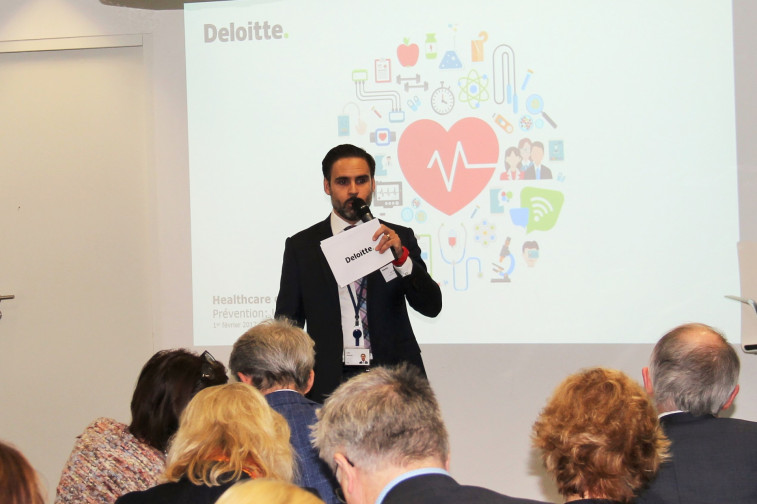Deloitte Healthcare Annual Conference
Prevention, a priority for the future?
Noncommunicable Diseases (NCDs – Cardiovascular diseases, cancers, respiratory chronic diseases, diabetes, and mental illness) are the world’s largest killers, with an estimated 38 million deaths annually representing 68 percent of all deaths worldwide, according to Deloitte’s white paper Noncommunicable Diseases: How to act now to reverse the curve tomorrow. It is estimated that 44 percent of all deaths caused by NCDs are people under 70 years of age mainly affected by cardiovascular diseases.
“Accounting for two-thirds of deaths worldwide, noncommunicable diseases are a growing burden for health care systems and economies.” says Luc Brucher, Partner and Healthcare and Life Sciences Leader at Deloitte Luxembourg. “Health promotion, in conjunction with better awareness of social and environmental factors affecting health, is key to an effective and long-lasting response to these diseases.”
The causes of NCDs are multiple and can be classified into two categories:
- Modifiable risk factors are the primary targets of intervention, as they are related to features that individuals or societies can change with the aim to safeguard and improve their health.
- Inherent risk are not modifiable and related to the individual. These risk factors include age, sex, racial/ethnic distribution, and genetic. Although they cannot be modified, they remain relevant indicators to take into account to design suitable prevention programs and determine their effectiveness.
What actions for which impact?
Based on the World Health Organization (WHO) recommendations, the white paper aims at providing guidance to governments for the design of an efficient public policy to prevent and control NCDs. Countries are developing strategies and guidelines for addressing NCDs and risk factors through innovative changes to health infrastructure, new funding mechanisms, improved surveillance methods, and policy responses.
The key findings of this white paper were presented at Deloitte Luxembourg’s sixth annual conference on healthcare and life sciences, which took place on 1 February, in the presence of 80 professionals and experts from the Luxembourg healthcare sector. This event was organized in collaboration with the Fédération des Hôpitaux Luxembourgeois (Luxembourg Hospital Federation, FHL), with the presence of Lydia Mutsch, Luxembourg’s Minister for Health and Equal Opportunities.
As part of the conference program, four start-ups offered new views on health prevention: RetroBrain R&D UG (haftungsbeschränkt), Black Swan LUX, Participatient and 1 Minuut B.V..
The white paper is readily available at Deloitte Luxembourg’s website here: www.deloitte.com/lu/lshc
Communiqués liés
RSA launches technology and management liability insurance s...
RSA Luxembourg, part of Intact Insurance Specialty Solutions, today announces th...
Lancement d'une nouvelle connexion intermodale entre Bettemb...
CFL multimodal a le plaisir d'annoncer le lancement de sa nouvelle connexion i...
Experts from LUNEX award first micro-credentials in Rwanda o...
The Rwanda Ministry of Education (MINEDUC) formally inaugurated Syllabi, a publi...
ERG Notes that ENRC Secures Landmark Victory as Court of App...
Eurasian Resources Group (ERG), a leading diversified natural resources group he...
LetzToken et La Vie est Belle annoncent leur partenariat ouv...
«?LetzToken?», plateforme de tokenisation pionnière basée à Luxembourg, et ...
ERG announces a Pre-Export Finance Facility Agreement based ...
Eurasian Resources Group (“ERG”, “The Group”), a leading diversified nat...
Il n'y a aucun résultat pour votre recherche







